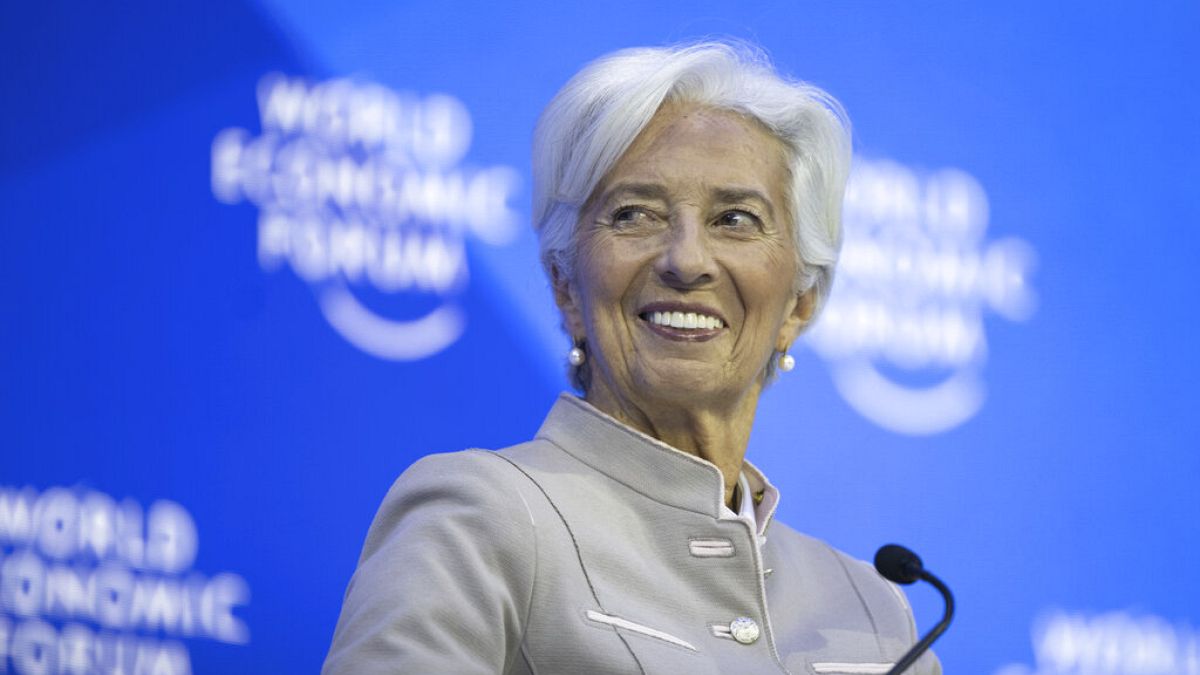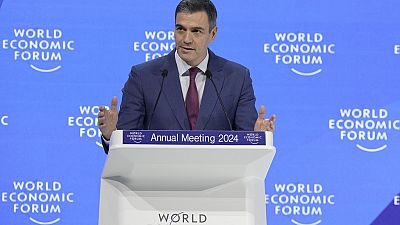At Davos, ECB's Lagarde hinted at possible summer rate cuts, but stressed that the ECB remains data-focused. Current economic uncertainties and market expectations for policy easing remain on the ECB's radar.
European Central Bank President Christine Lagarde has indicated that interest rate cuts might be on the table by the summer, an insight gleaned from her interview at the World Economic Forum in Davos.
During a discussion at the Bloomberg House in Davos, Lagarde was questioned about the possibility of garnering majority support within the ECB for upcoming rate cuts, amid signs that other policymakers are supportive of such a move.
While acknowledging the possibility that the ECB's interest rates have peaked, Lagarde emphasised the bank's reliance on economic data, noting ongoing uncertainties and still unanchored indicators.
Energy prices pull inflation up in December
Eurostat data showed a rise in the annual inflation rate in the Euro Area to 2.9% in December, up from the 2.4% recorded in November, the lowest in more than two years. This increase, primarily influenced by energy prices, marked the first inflation climb since April. The breakdown of inflation contributors included services (1.74 percentage points), food, alcohol, and tobacco (1.21 points), non-energy industrial goods (0.66 points), and energy (-0.68 points).
Money markets are currently expecting the ECB implementing rate cuts totalling 157 basis points in 2024, equivalent to six reductions of 25 basis points each. This expectation stems from a belief that the European economy will slow down, leading to diminished price pressures and compelling the ECB to intervene.
Over-optimism could hamper inflation fight
Lagarde cautioned against premature optimism in markets, which could hinder the ECB's inflation control efforts. "Too optimistic markets don't help the ECB's inflation fight," the ECB Governor said.
She clarified that, although the ECB is on track towards the 2% inflation objective, it would be too early to declare victory until the bank can confidently sustain this level.
"We are optimistic that we have a credible prospect of a return of inflation to 2% in 2025 but a lot still needs to go well for that to happen," she stated.
Lagarde explained that the ECB is closely monitoring several economic indicators, including wages, profit margins, energy prices, and supply chain dynamics.
ECB to keep an eye on ongoing global supply chain developments
The euro area's unemployment rate held steady at 6.4% in November, matching the record low set in June. Additionally, the third quarter witnessed a historic 5.4% year-on-year increase in wage growth, raising some warnings on second-round effects on inflation.
The ECB is closely monitoring global supply chain dynamics as a crucial factor in the upcoming period, particularly to assess whether the ongoing disruptions in the Red Sea significantly impact goods inflation in the eurozone. The cost of shipping a 40-ft (12.2m) equivalent container from China/East Asia to the Mediterranean has surged almost three times since the beginning of the year. This increase is attributed to attacks by Iran-backed Houthis on commercial ships, compelling them to take longer, more expensive alternate routes.



